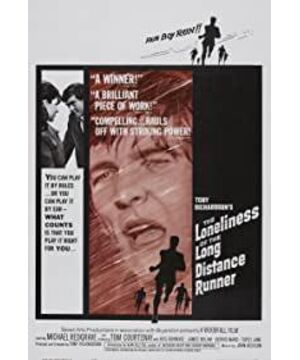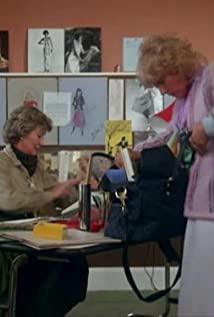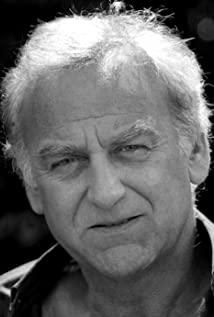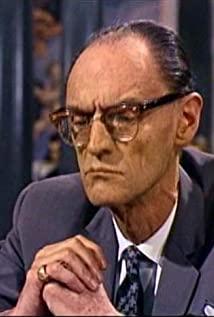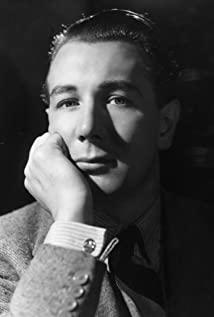When it comes to the artistic images of runners, the young people who love movies will probably think of Lola who ran for love, Cao Chengyou with a smile in "Marathon", and of course Forrest Gump, who ran out of wealth and glory, is indispensable. Running can make the protagonists physically and mentally healthy, refreshed, happy in love, and become famous and start a family. By the way, it also makes the hearts of the audience shrunk in the chairs to speed up the beating rate. If you watch the British movie "The Loneliness of the Long Distance Runner" with the expectation of "mind fitness", you will probably be disappointed. The protagonist of the film, Colin Smith, has a line that sums up the meaning of running in this film: "Running's always been a big thing in our family, especially running away from the police." (Running is always the highlight of our family, Especially running with the police)
This film was filmed in 1962. This film was adapted by Aaron Sillito from his novel of the same name. It is the most representative "angry youth" work of director Tony Richardson. Lin, imprisoned for stealing, in the juvenile correctional institution, the dean finds that Smith is good at long-distance running, and decides to train him to be an excellent persuader, and win the blue satin award in the cross-country distance running competition in the British juvenile correctional institution. Huai, using this as the capital for his promotion and fortune. Colin's long-distance running talent was discovered, and he received intensive training, but this brought him endless emptiness and confusion. He recalled various previous misfortunes, so he was more dissatisfied with the society and held a strong attitude towards society. Attitude of resistance, in the final long-distance race, he did not want to be the Dean's tool. After leading most of the race, he stopped a few dozen meters away from the finish line and kicked the Dean's trophy into the gutter with one kick. The film is in Colin. Ended in the scene of being punished for hard labor.
The film starred Tom Courtrey, who won the BAFTA Award for Best Newcomer that year, and his lines in the film are short and choking (the head of the reformatory school asks: "What were you thinking when you went into that bakery and burglarized? ?" Colin replied, "I was busy going in and stealing, and I didn't think about anything." "Then are you afraid?" "If I was afraid, I wouldn't go."), accompanied by bright and dark eyes, an arrogant The bad blanks came out so vividly. A girl who likes to watch literary films commented: "We saw the protagonist Smith, not not disappointed, he looks a little old, not beautiful, does not look like British, not because he is not gentleman, you can't All British people are required to have a gentleman's morale, but he doesn't even look like a British ruffian. What I saw on that face that was older than his actual age was mockery and confrontation." The
protagonist Colin is not a good citizen, and the audience "is not not disappointed "The protagonist in the film is not a hero who challenges the evil system, he is indeed a gangster who has everything in his pocket, and the authorities are not some evil old society that oppresses the people, but the protagonist is determined to forge ahead on the road of crime. , he even had plans for his criminal career after he left the reformatory. Given that the audience was supposed to be good law-abiding citizens, it was said that some audience members were very angry after watching the film, claiming that they didn't want to see Colin get out of the reformatory at all. Another part of the audience excitedly "thrown their hats into the sky". Colin, who is single-handedly, is indeed not a hero, but he is sympathetic and even respectful. Their situation reminds me of Dandong's famous saying: "truth, harsh truth", he is facing the confusion of the youth of an era and the whole The barriers of the social system are formidable.
The six years of war in World War II have fundamentally changed the traditional thinking of Britain. The sea, land and air soldiers who returned to the UK from all over the world with the dust of war, as well as the modern transportation and communication equipment that seems to have greatly reduced the earth, have given people an unprecedented understanding of the world and a new view, and a new perspective on human development. Trends have new ideas. They hoped and vaguely believed that the postwar world was bound to undergo an unprecedented transformation. Indeed, in 1945 the British Labour Party came to power with an overwhelming majority, arousing fervent expectations in the hearts of people. They simply think that a social order established according to socialist ideals has begun, realizing social reforms, equalizing opportunities, eliminating the gap between the rich and the poor, and establishing a veritable welfare society. It is true that the Labour Party government has taken some measures and implemented "nationalization" of major industries such as railways and mining. The national economy has improved, fiscal revenue has also increased, and social divisions have gradually eased. However, all this is still far from people's ideals and requirements. It is a world of difference. Although the new society they yearn for is still vague, they always feel that the old social traditions should be swept away. The Labour Party obviously has no intention of moving forward. In the 1950 election, it won the election with a narrow majority, but the second He stepped down in 2010 amid complaints. The successor Conservative Party showed no sign of reform, much to the disappointment of the British people. This pessimism is growing, especially among young people, who feel that their pursuit of a new type of socialization is So they became more and more bystanders or even rebels in society, refusing to cooperate with the government and making sharp and severe criticisms of the government, the church, and society.
In such an environment, a large number of realistic films depicting people on the fringes of society have appeared, and the rebellion of young people has also become a common theme in films. In Lindsay Anderson's "If" (1968), the rebellious students shoot down their principal who tries to placate them with a sermon. And Colin in "The Loneliness of the Long Distance Runner" has also become an idol for the majority of British youth for a while. Like the boarding school, the reformatory in the British film is a symbol of Britain's deep-rooted social hierarchy and a microcosm of class consciousness. Although the film depicts Colin's rebellion in detail, at the end Colin failed to "fly over the reformatory", and Under the supervision of the supervisor, he was doing hard labor with angry eyes. The director and screenwriter of this film are both cultural figures in the British "Angry Youth" period in the 1950s. As the years pass, they are no longer "youth" and no longer "angry". Director Tony Richardson graduated from Oxford University and is the host of the school's drama association. The British stage company he founded with him acquired the Royal Grand Theatre, and launched the British "Free Film" movement in the same year. Tony Richardson is its core figure One, in 1958, he successfully directed the stage play "Looking Back On Anger", and two years later, he formed a production company with the playwright John Osborn to bring it to the screen.
In 1961 he adapted the drama about working-class life in Blackpool into the film "Sweet Words", followed by "The Loneliness of the Long Distance Runner", and in 1963 he again collaborated with John Osborne on the eighteenth century novel "Tom Jones". "Adapted into a movie, its avant-garde and personal directing style makes it a masterpiece that mixes a variety of different techniques, but is not contradictory and confusing at all, the film won the Oscar for best picture and four director awards in one fell swoop. , The great success pushed Richardson's career to the top. After that, he came to Hollywood, but some of the films he cooperated with others were not good enough, and he was unable to do what he wanted. In 1968, during the filming of "The Legend of Heroes", he and long-term Partner John Osborne broke up; Tony Richardson died of AIDS in Los Angeles in 1991.
Screenwriter Aaron Sillito started his own transformation through the popularity he accumulated during the "Angry Youth" period. He frequently participated in or adapted his own works into movies, and achieved great commercial success. "The Loneliness of the Long Distance Runner" is Among them, the content is much richer than the original novel, and Silito has contributed greatly. Later, while writing novels, he occasionally tried writing poems, TV series scripts, children's literature works, and travel notes, and he also achieved great success. Judging from the recent photos of him circulating on the Internet, the writer does not seem to have gained much weight. I wonder if he is running and exercising like his protagonist?
View more about The Loneliness of the Long Distance Runner reviews


